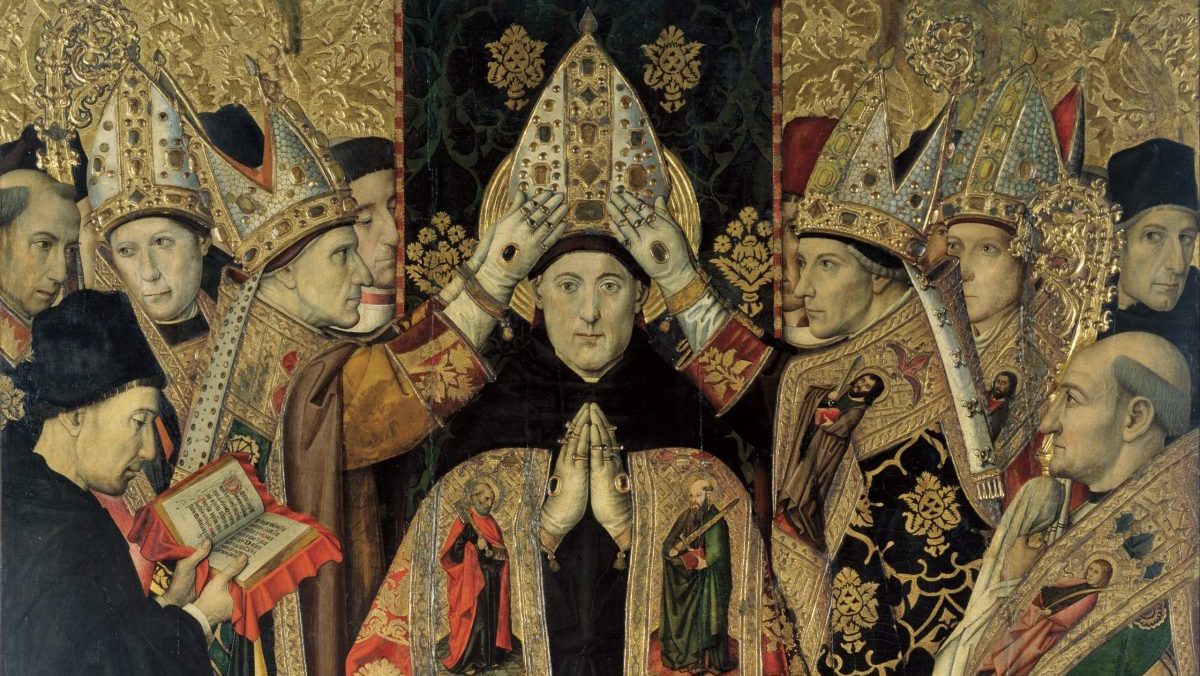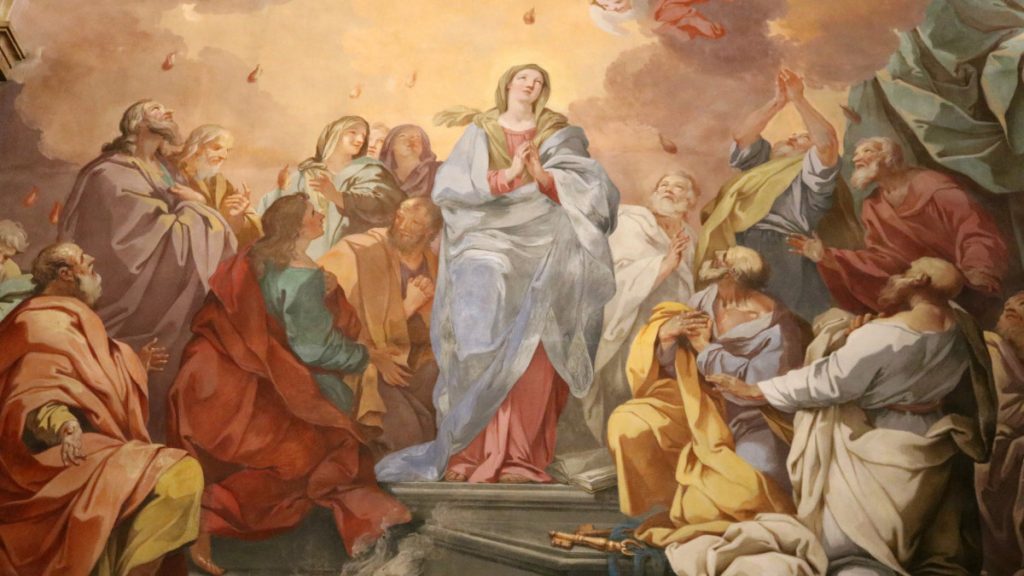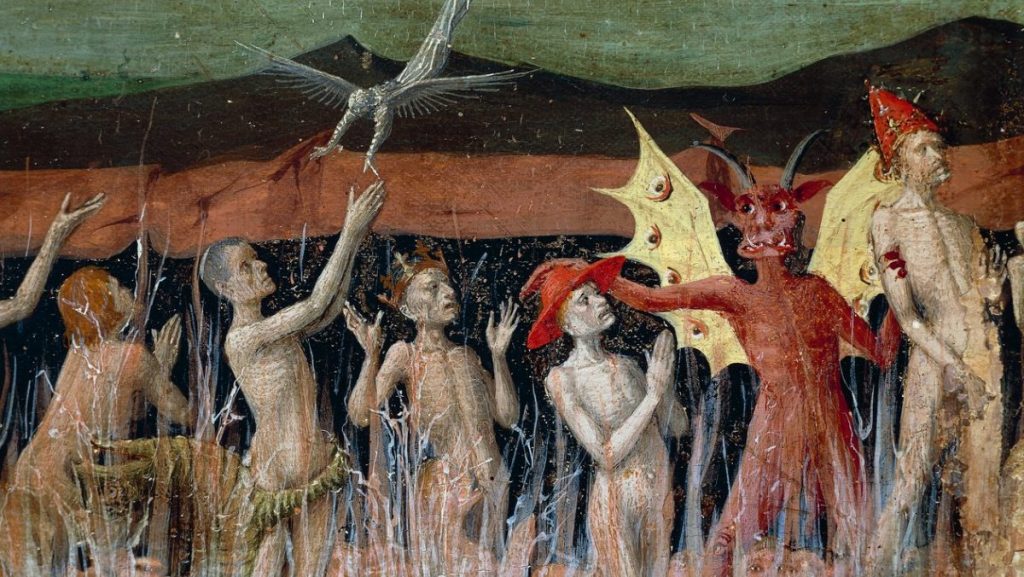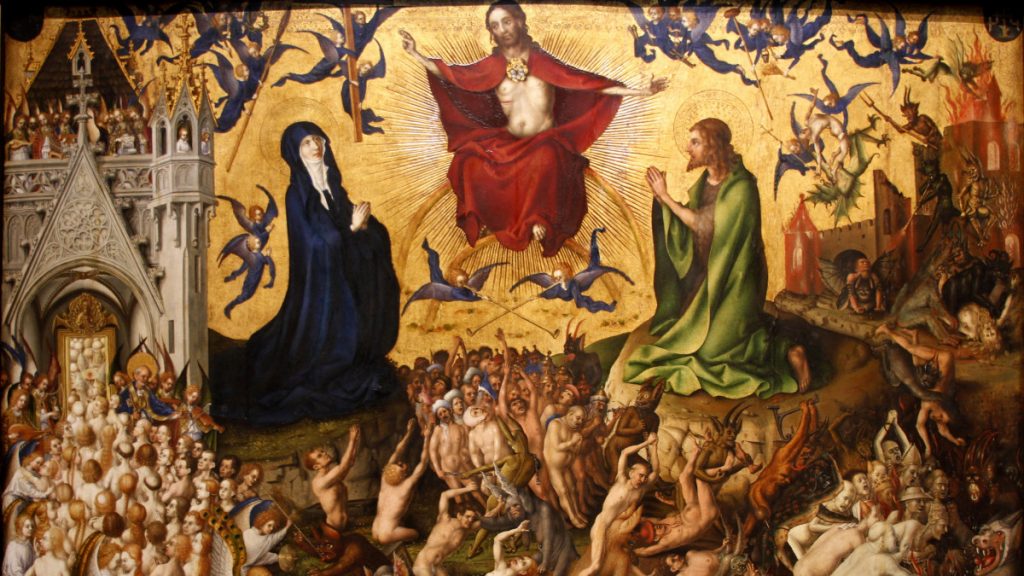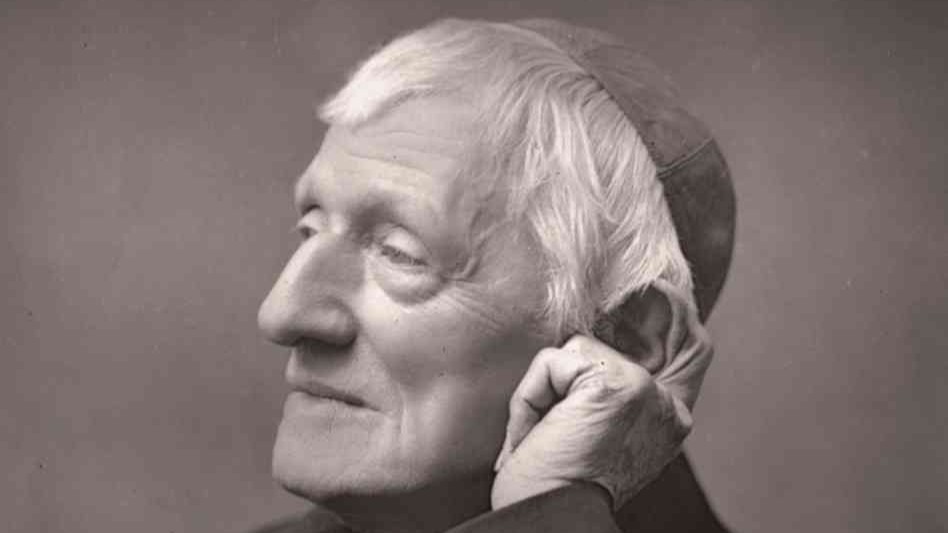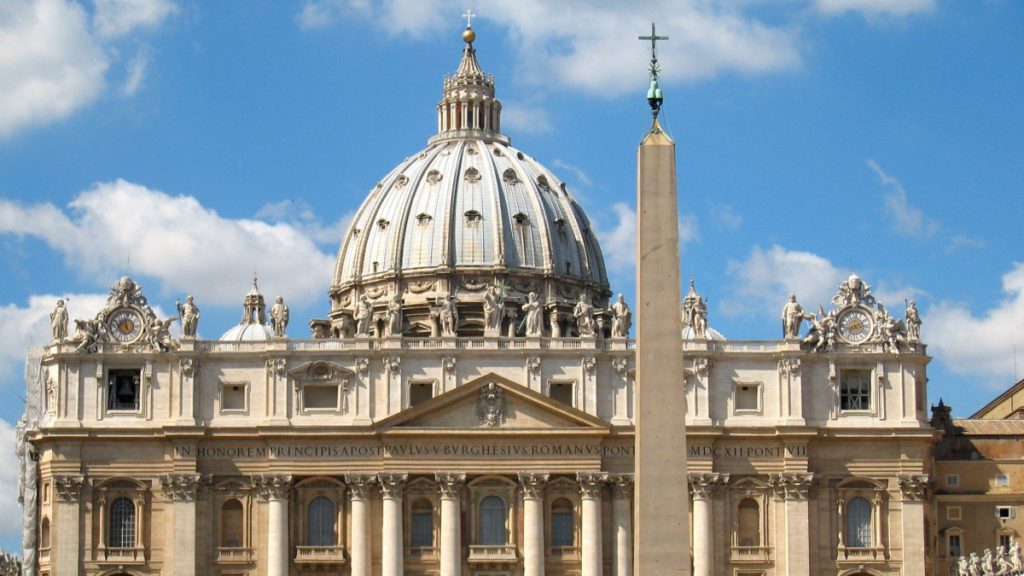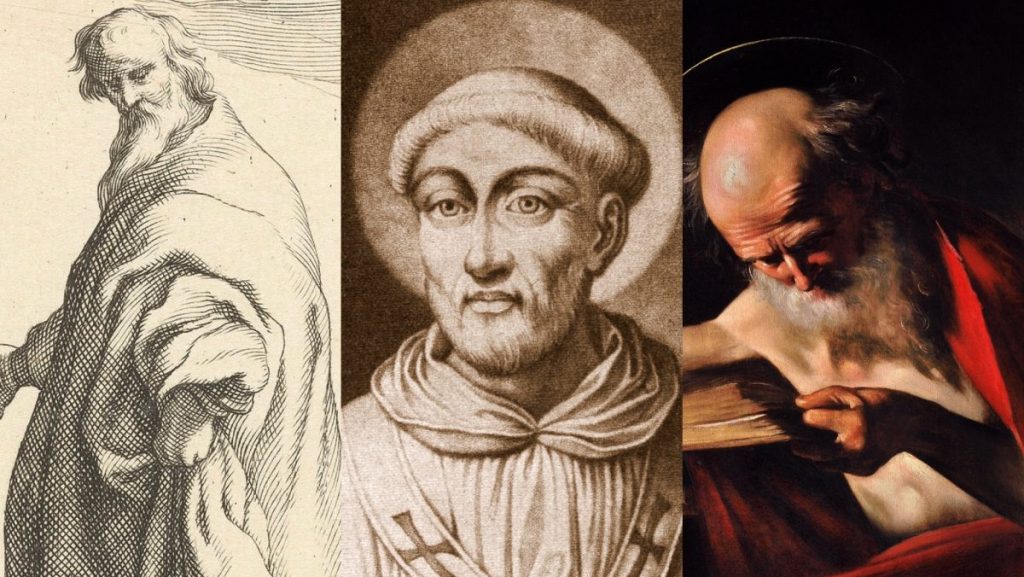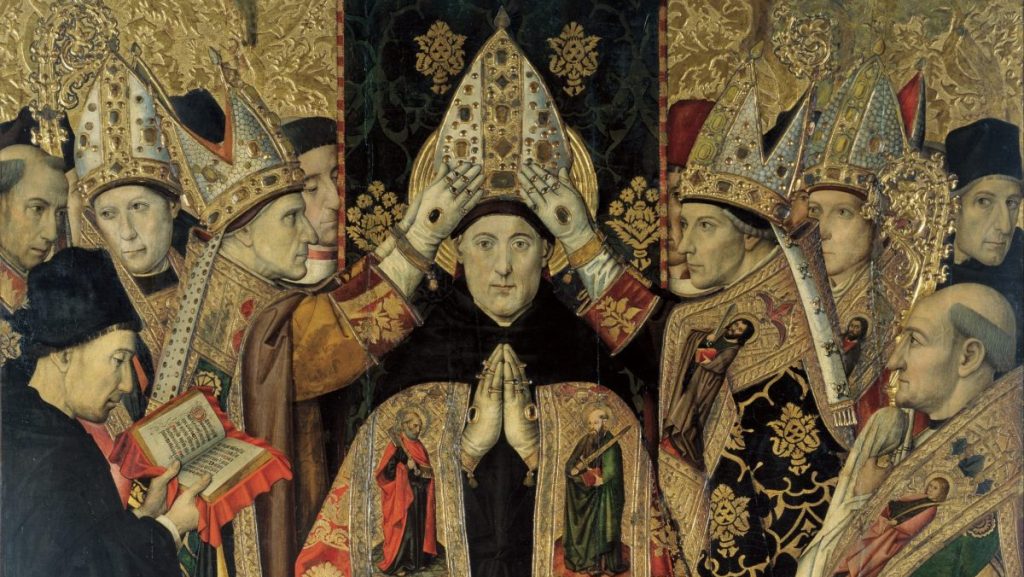Introduction
Here is a wonderful sample from St. Augustine of how the Church Fathers seamlessly read Old and New Testaments together, and in such a way as to confirm the Catholic Faith.
In this example, St. Augustine provides commentary on Psalm 45:16 in support of Apostolic Succession (see Becoming Catholic Quote Archive—Apostolic Succession for more quotes on this subject from the Church Fathers).
He affirms that the Church was not “left desolate” of leadership after the death of the last Apostle, but enjoys it through their successors, the bishops. As with all the Psalms, St. Augustine reads it as pointing forward to the New Covenant and the Catholic Church.
Note that he says the bishops sit on the “thrones” of the Apostles. These are the “thrones” of the kingdom Jesus promised to the Apostles, and by extension their successors.
We’ve touched on this topic in Becoming Catholic #39 and elsewhere. You can find New Testament references to these Apostolic thrones in Matt. 19:28, Luke 22:28-30, and Apoc. 20:4.
St. Augustine concludes, as he often did, with a call to all who have separated from the Catholic Church to come Home.
Roadmap
Our Roadmap is as follows:
- Our thesis is that St. Augustine’s Exposition of Psalm 45 shows a thoroughly Catholic understanding of apostolic succession, drawn typologically from the Old Testament and its prophecies of the Church. We will show this by:
- Quoting St. Augustine’s Exposition of Psalm 45; and
- Summarizing the conclusions we believe can be reached from it.
St. Augustine, Exposition of Psalm 45
Here are the words of St. Augustine from Exposition of Psalm 45 (§29):
“Instead of your fathers, children are born to you” (v. 16).
Nothing can be more manifest. Now consider the “Temple of the King” itself, for it is on its behalf he speaks, on account of the unity of the body that is spread throughout all the world: for those very persons who have chosen to be virgins, cannot find favor with the King unless they be led into the Temple of the King.
“Instead of your fathers, are your children born to you.”
It was the Apostles [who] begat you: they were “sent”; they were the preachers; they are “the fathers.” But was it possible for them to be with us in the body forever? Although one of them said, “I desire to depart, and to be with Christ, which is far better; to abide in the flesh is necessary for your sakes” (Phil. 1:23-24). It is true he said this, but how long was it possible for him to remain here? Could it be until this present time, could it be to all futurity? Is the Church then left desolate by their departure? God forbid.
“Instead of your fathers, children have been born to you.”
What is that? The Apostles were sent to you as “fathers”; instead of the Apostles, sons have been born to you; there have been appointed Bishops. For in the present day, from where do the Bishops throughout all the world derive their origin? The Church itself calls them fathers; the Church itself brought them forth, and placed them on the thrones of “the fathers.” Think not yourself abandoned then, because you see not Peter, nor see Paul; [that you] see not those through whom you were born. Out of your own offspring has a body of “fathers” been raised up to you.
“Instead of your fathers, have children been born to you.”
Observe how widely diffused is the “Temple of the King,” that “the virgins that are not led to the Temple of the King,” may know that they have nothing to do with that marriage.
“You shall make them princes over all the earth” (v. 16).
This is the Catholic Church: her children have been made “princes over all the earth”; her children have been appointed instead of the “fathers.” Let those who are cut off own the truth of this, let them come to the One Body; let them be led into the Temple of the King. God has established His Temple everywhere; has laid everywhere “the foundations of the Prophets and Apostles” (Eph. 2:20). The Church has brought “forth sons;” has made them “instead of her fathers” to be “princes over all the earth.”
Conclusion
From St. Augustine’s Exposition of Psalm 45, we can conclude the following about his understanding of apostolic succession:
- The Apostles were the original “fathers” of the Church;
- As “fathers,” they gave birth to spiritual “children,” so that the Church would not be left “desolate” after their death;
- These “children” are the bishops who have succeeded the Apostles throughout the world, and who have in turn become the new “fathers” of the Church;
- These “fathers” sit on the apostolic “thrones” of the Church (see #39 | The Biblical Roots of Apostolic Succession, Infallibility, and the Indefectibility of the Church, Part 1);
- This is the Catholic Church, which is “one body,” the Temple that is “everywhere,” and whose children are now “princes over all the earth.”
